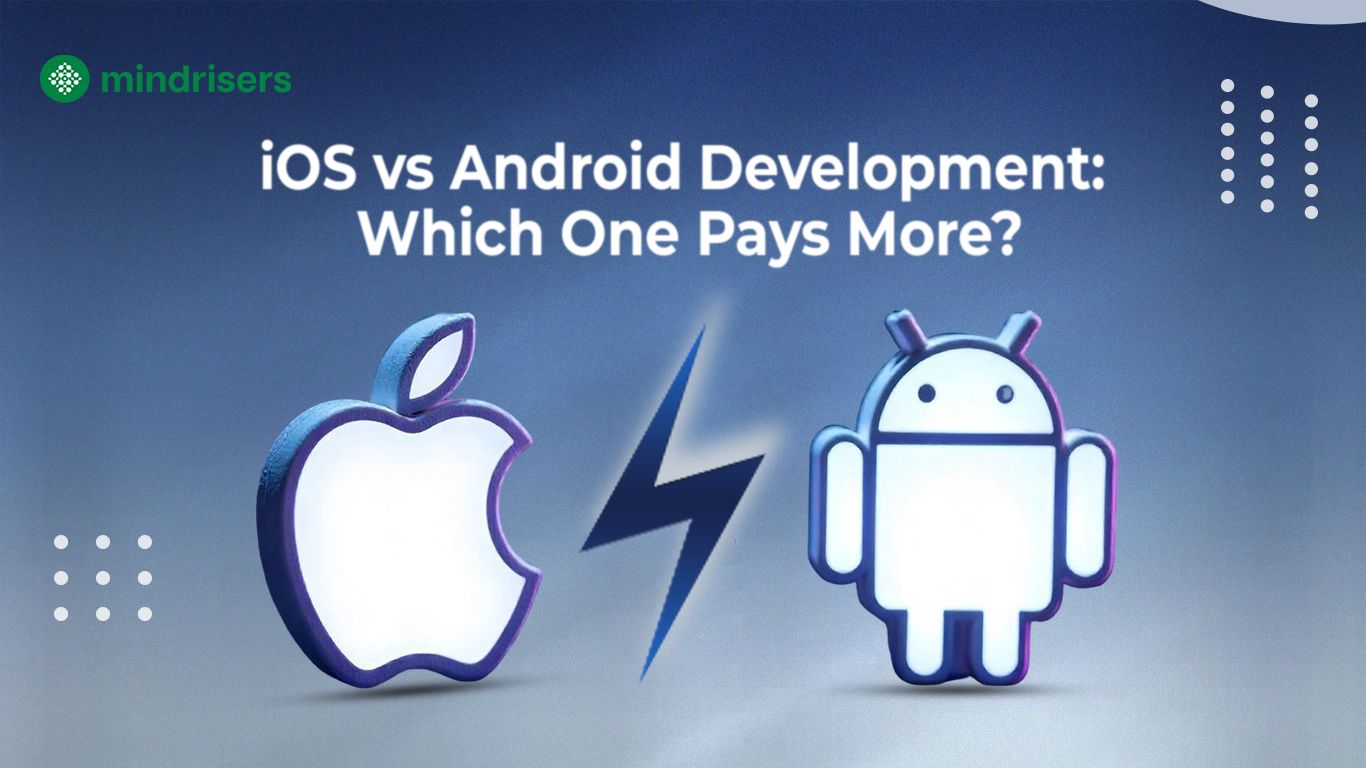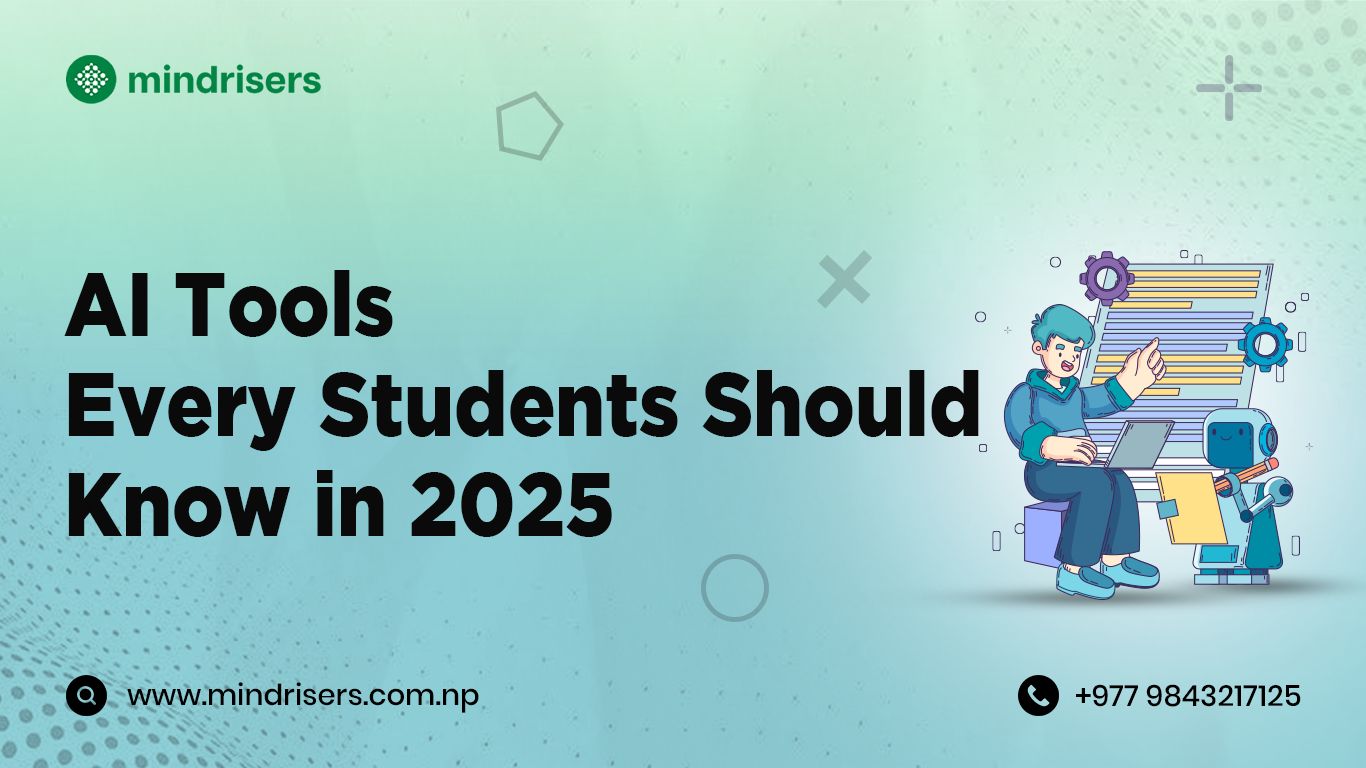
Rupesh Basnet - Author
2025-07-14
Choosing Android vs iOS development is a big decision for any mobile developer in 2025. Both platforms have their pros, career opportunities, and drawbacks. Here's what you should know before making your decision:
- Developer Salaries: iOS developers on average earn a bit more, particularly in developed economies, owing to the greater availability of monetization for iOS apps. Android developers are also well paid and have the advantage of a wider global base.
- Job Development and Market Demand: Both operating systems have a high demand for skilled developers. Android has the largest global market share, especially in developing markets; hence, more jobs are on offer internationally.
iOS development is more favored in high-end markets like the US and Europe, where quality and revenue are prioritized.
- Skills and Development Tools: Developing for iOS requires learning Swift or Objective-C and Apple's Xcode IDE. Android requires Kotlin and Java with Android Studio as the preferred tool. Your familiarity with these languages and tools can help you make the choice.
- User Base and Market Reach: Android leads the world in device market share, providing developers with a huge audience across several manufacturers. iOS is focused on a smaller, yet richer market, frequently leading to more revenue per user for applications.
- Career Flexibility and Cross-Platform Options: It's easier to learn both platforms or use frameworks like Flutter and React Native, which can broaden your career prospects and allow you to create apps for both ecosystems simultaneously.
Tools and Technologies Every Mobile Developer Needs to Know
In 2025, having the right tools and technologies under your belt is important for any mobile developer who wishes to master Android or iOS development. Both ecosystems have their own specialized tools, and knowing them will enable you to develop quality, functional applications.
iOS Development Tools:
Swift: A modern programming language for developing iOS applications, renowned for its performance and security.
Objective-C: The legacy, but still relevant, language used in much older software.
Xcode: Apple's integrated development environment (IDE) where developers code, debug, and test their apps
SwiftUI: A declarative framework for building user interfaces, which makes the design process even simpler.
TestFlight: Apple's beta testing service, which enables developers to distribute pre-release applications to testers simply.
Android Development Tools:
Kotlin: The official choice for Android development, fully compatible with Java and optimized for short, expressive code.
Java: The traditional programming language that is still widely used and supported.
Android Studio: The official Android development environment that comprises a set of tools for coding, debugging, and performance profiling.
Jetpack Compose: Android's new composition API for declaring native UIs, analogous to SwiftUI.
Firebase: A complete platform with cloud services, analytics, and backend for Android applications.
Cross-Platform Development Tools:
Flutter: Google's UI toolkit for creating natively compiled applications for mobile, web, and desktop from a single codebase.
React Native: A popular JavaScript framework that allows developers to create mobile apps for both platforms with React.
Which Skills Does a Successful Android Developer Have?
To be successful as an Android developer in 2025, one must master both technical and soft skills. The following are the most important skills that differentiate top Android developers:
Kotlin and Java skills: Kotlin is now the preferred language for Android applications today, but Java is still relevant when dealing with legacy projects.
Good knowledge of Android SDK and Android Studio: Knowledge of APIs, UI components, and the integrated development environment is required.
Jetpack library experience: Libraries such as LiveData, ViewModel, and Jetpack Compose make it easy to build robust, maintainable apps.
Knowledge of Material Design: Adhering to Google's design standards guarantees easy and consistent user experiences.
Git version control: Teamwork and code management ability are very important in collaborative settings.
Testing and Debugging: Unit testing, UI testing, and debugging skills enhance the quality of the app.
Problem-solving and adaptability: The Android platform is not standardized, and thus adaptability is essential to manage various devices and versions of operating systems.
What Skills Make a Successful iOS Developer?
It requires being up-to-date with Apple's evolving technologies and methodologies to be a productive iOS developer in 2025. The key skills involved are:
Swift and Objective-C expertise: Swift is the new, preferred language, but legacy code bases are in Objective-C.
Experience with Interface Builder and Xcode: Familiarity with Apple's IDE and UI design tools is a must.
SwiftUI and UIKit expertise: SwiftUI is the future of UI design but is not yet relevant to apps being created today.
Understanding of Apple's Human Interface Guidelines: Following them ensures apps are user-friendly and Apple-compliant.
Experience with Core Data and networking: Data persistence and API connectivity are fundamental skills.
Testing and debugging: With XCTest and Instruments, you can ensure app stability and performance.
Creativity and attention to detail: Apple appreciates aesthetically pleasing apps with seamless user experiences.
Advantages and Disadvantages of Specializing in Android or iOS Development
Being proficient in either Android or iOS is beneficial in its own right. The following is a brief overview of the advantages and disadvantages:
Android Development Advantages
- More global market share with a diverse set of users
- Enhanced flexibility in app distribution (multiple app stores)
- Open-source platform with huge customization possibilities
Android Development Cons
- Device and operating system version fragmentation adds complexity to development
- Often requires optimization for varied hardware
iOS Development Advantages
- Typically increased developer revenues and app earnings
- Fixed hardware and OS installation make testing easier
- Strong brand affinity and high-end user base
iOS Development Cons
- Stringent App Store rules and approval process
- Confined to Apple's universe (iPhone, iPad, etc)
Conclusion
Android or iOS development more or less depends on your career aspirations, desired technologies, and the nature of opportunities you would like to explore as a mobile developer.
Although iOS development may be followed by better salaries in premium markets, Android development offers you an opportunity to cater to a large global audience and varied career opportunities. If you are aware of each platform's individual skill sets, tools, and market forces, you are able to make an informed decision that is most suitable to your strengths and goals.
If you are an Android, an iOS, or even both through cross-platform development expert, there are sufficient opportunities for growing and thriving within the mobile development sector. Stay updated with the latest trends and continue to enhance your skills to be an outstanding top mobile developer in the evolving trend of Android vs iOS development.
FAQs
-
Which is more developer-friendly, Android or iOS?
It depends on your Kotlin/Java for Android or Swift/Objective-C for iOS skills and audience.
-
What is the skill set needed for an iOS developer?
Skilled in Swift, Xcode, UIKit/SwiftUI, and the Apple Human Interface Guidelines.
-
Which programming languages do Android developers use?
Mainly Kotlin but Java is also used heavily for legacy codebases.
-
Are iOS developers paid more than Android developers?
In general yes, because of increased app monetization and demand in premium markets.
-
Can I create apps for both Android and iOS?
Yes, cross-platform frameworks such as Flutter and React Native support cross-platform app development with code sharing.
-
Which platform offers greater career opportunities for mobile developers?
Android, due to its higher worldwide market share and device fragmentation.
Recent Post
View All
Generative Engine Optimization (GEO) in 2025 and beyond: A Complete Beginner-Friendly Guide
2025-12-02.550 Views
Complete Roadmap to Become a Full Stack Python Developer
2025-10-14.905 Views
How Local Businesses in Nepal Can Use WhatsApp Marketing Effectively
2025-08-18.1533 Views
AI Tools Every Students Should Know in 2025
2025-08-18.1503 Views
Never miss an Opportunity !
Want to learn TOP 2025 IT Skills ?
We open IT skill classes Monthly in Design, Development, Deployment, Data etc.
Have something to Ask ?
get admission enquiry